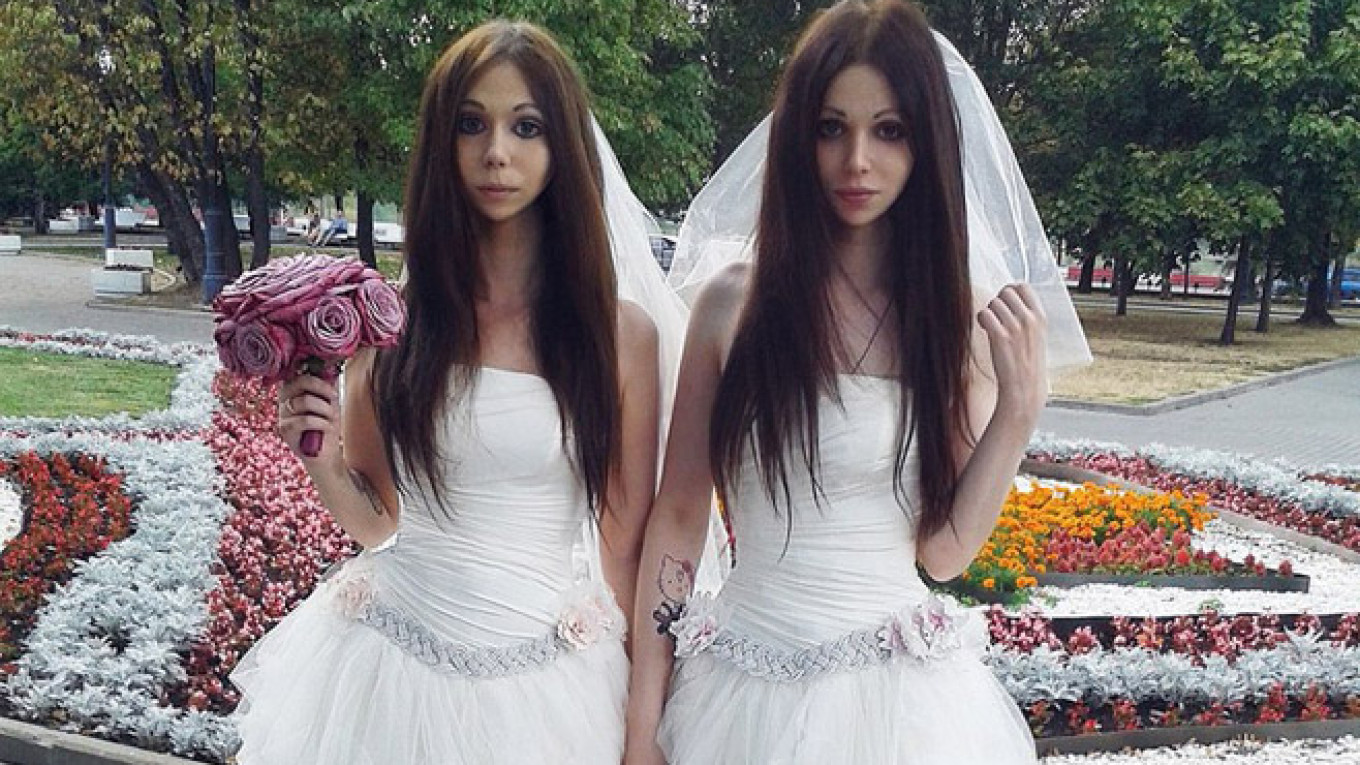Two brides wed in Moscow earlier this month, with teeth-grinding authorities unable to prevent it despite a ban on same-sex marriage — because one of the brides was a man.
The young couple sent shockwaves rippling through conservative circles across the nation when they both appeared for a wedding donning white floor-length gowns.
But one of them is legally a man who claims on his page on Russian social network Vkontakte that "psychologically," he is "a girl."
The groom, who uses the moniker Alina Davis, said that civil registry officials spent 15 minutes chiding him and his then-future wife, identified as Allison Brooks, ahead of the ceremony.
"She called us the shame of the family and said we need medical treatment … I was afraid my pussycat [an affectionate pet name in Russian] would beat the [expletive] out of her," Davis wrote on his Vkontakte page.
But the couple — each of whom refers to the other as "pussycat" — were eventually allowed to sign the papers, declaring them man and wife.
"This is an important precedent for Russia," Davis wrote.
The wedding took place in western Moscow on Aug. 6, according to Komsomolskaya Pravda, but attracted little media attention until this week.
The couple has since received online threats for "subverting Russia's foundations," Davis told The Moscow Times on Wednesday.
The 23-year-old groom — a hair stylist who sings for a screamo hardcore band — also explained on Vkontakte that "girls are more beautiful than boys, and it is disgusting for a girl to date a coarser and uglier creature."
Russia does not allow same-sex marriage, and outlawed "propaganda of nontraditional sexual relations among minors" in 2013.
Conservative politicians and celebrities also lambasted Austrian drag queen Conchita Wurst, who won the Eurovision song contest in May. This comes in stark contrast to the 2000s, when cross-dressing Ukrainian singer Verka Serdyuchka and faux-lesbian pop duo Tatu enjoyed mainstream popularity in Russia.
See also:
A Message from The Moscow Times:
Dear readers,
We are facing unprecedented challenges. Russia's Prosecutor General's Office has designated The Moscow Times as an "undesirable" organization, criminalizing our work and putting our staff at risk of prosecution. This follows our earlier unjust labeling as a "foreign agent."
These actions are direct attempts to silence independent journalism in Russia. The authorities claim our work "discredits the decisions of the Russian leadership." We see things differently: we strive to provide accurate, unbiased reporting on Russia.
We, the journalists of The Moscow Times, refuse to be silenced. But to continue our work, we need your help.
Your support, no matter how small, makes a world of difference. If you can, please support us monthly starting from just $2. It's quick to set up, and every contribution makes a significant impact.
By supporting The Moscow Times, you're defending open, independent journalism in the face of repression. Thank you for standing with us.
Remind me later.


